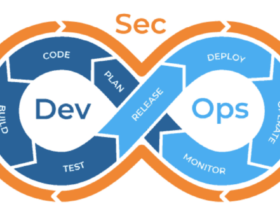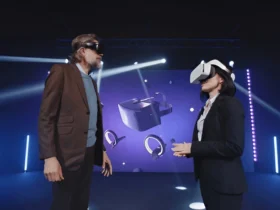Welcome to your complete guide to Artificial Intelligence (AI)! If you’ve heard a lot about AI but don’t know where to start—don’t worry, you’re in the right place 😊. In this article, we’ll take you on a simplified and fun journey through the fascinating world of AI, with helpful links to deeper resources along the way.
🔹 What Is Artificial Intelligence?
Artificial Intelligence is the ability of computers and machines to perform tasks that normally require human intelligence. This includes learning, reasoning, speech recognition, and decision-making. While the concept dates back to the 1950s, AI is now deeply embedded in our daily lives.
The main goal of AI is to simulate human intelligence and enable systems to interact with us smoothly and efficiently. From self-driving cars to virtual assistants, AI has become a force to be reckoned with.
🔹 AI vs Machine Learning: What’s the Difference?

Although often used interchangeably, Machine Learning (ML) is actually a subset of AI. Here’s how they differ:
- Artificial Intelligence (AI) : The broader concept of machines simulating human intelligence.
- Machine Learning (ML): A specific method that allows machines to learn from data without being explicitly programmed.
🔗 Machine Learning vs AI – Oracle Guide
While AI is about creating “intelligent” systems, ML focuses on making those systems improve their performance over time through data.
🔹 AI Technologies: How Do Machines Learn?

To think and learn, machines rely on technologies like :
- Machine Learning (ML): Learning patterns from data to make predictions or decisions.
- Deep Learning (DL): Uses neural networks and massive datasets to learn complex behaviors.
- Natural Language Processing (NLP): Allows machines to understand human language.
- Computer Vision: Helps machines interpret images and video just like humans.
🔗 AI Explained – Microsoft Learn
These technologies are what enable robots to talk, understand, and analyze as if they were people.
🔹 Real-World Applications of AI: It’s Everywhere!
AI is transforming every major industry. Here are a few examples:
🔬 Healthcare
- AI helps diagnose diseases faster and more accurately.
- Robotic surgeries now assist in complex operations.
🔗 AI in Healthcare – WHO
🎓 Education
- Smart platforms personalize learning experiences.
- AI-based grading systems give instant feedback.
📈 Marketing
- Analyzes customer behavior for smarter ad targeting.
- Personalizes content based on preferences.
🔗 AI in Marketing – Harvard Business Review
🔐 Cybersecurity
- AI detects and responds to threats in real-time.
- Helps prevent cyberattacks with predictive analysis.
🔗 AI in Cybersecurity – Forbes
🔹 Challenges & Ethics: Should We Be Worried?
Despite its benefits, AI raises many concerns:
- Privacy : Are our data being used responsibly?
- Job displacement : Will robots replace human workers?
- Bias : Can AI make fair decisions?
🔗 AI Ethics – UNESCO Recommendation
These issues remind us that we must develop ethical guidelines and legal frameworks to govern AI responsibly.
🔮 The Future of AI: Where Are We Headed?
We’re only at the beginning. Experts predict :
- Closer integration between humans and machines
- AI creating original art and music
- Development of AGI (Artificial General Intelligence) with human-like thinking
🔗 AGI – Future of Life Institute
But the real challenge is controlling this powerful force and directing it toward good.
AI isn’t just another technology—it’s a revolution that’s reshaping the world. By understanding its basics and applications, we become better equipped for a future led by intelligent systems… working alongside humans.
📎 Share this article and start the conversation:
How do you see the future of AI? Are we truly ready for it?
Learn more about :









